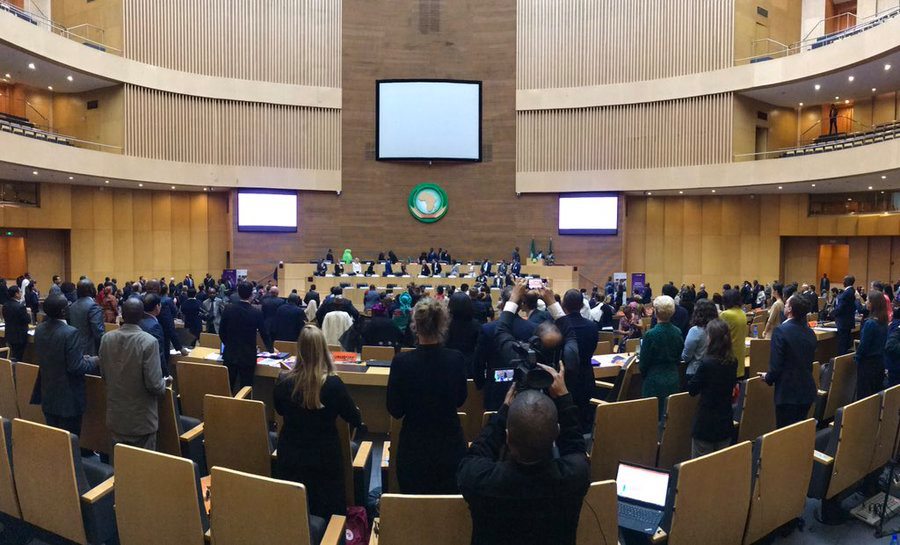
Participants of the WeProtect Global Alliance Summit. | Contributed Photo
Children aged 10 years or younger make up over a third of the images assessed to be in the most serious category of online sexual exploitation and abuse, according to the Global Threat Assessment 2019 report released by the WePROTECT Global Alliance during summit held in Addis Ababa, Ethiopia from December 11-12, 2019.
International Justice Mission (IJM) Cebu Field Office Director John Tanagho joined representatives from 39 organizations operating to both prevent and respond to online child sexual exploitation and abuse in over 30 countries worldwide.
During the summit, political leaders, senior representatives from international organizations and subject-matter experts spoke out about the threat of online child sexual exploitation and abuse and the commensurate response required.
“As internet coverage continues to grow rapidly around the world, the scale and impact of the threat to children of online sexual exploitation and abuse is growing dramatically. 200,000 children go online for the first time every day, often with little or no awareness of or protection from the risks. We must seize the opportunity for more effective coordinated action to keep children safe online before it is too late,” says End Violence Executive Director and WePROTECT Global Alliance member, Dr. Howard Taylor.
“Every single photo, every single video of a child being abused is not a data point, not a number – it’s a child. It is a child who will be haunted not only of the memories of their abuse, but by the fear of its ceaseless digital lifespan.”
Children who experience sexual abuse are more likely to be socially isolated, suffer from mental health problems, and attempt and commit suicide. They are also more likely to develop alcohol or drug dependencies. These outcomes impact every aspect of a child’s life, including a higher likelihood to perpetuate a cycle of violence onto the next generation.
Participants of the End Violence Guarantee Funds Convening. | Contributed Photo
The Global Threat Assessment aims to raise further international awareness, provide greater understanding of the threat and how it is evolving, provide case studies of progress, and critically, highlight 11 steps needed to tackle the threat.
This year’s assessment report also revealed that there are 46 million unique images or videos relating to child sexual exploitation and abuse in EUROPOL’s database and 750,000 individuals looking to connect with children for sexual purposes online at any one time.
The summit followed the largest gathering of the End Violence network of grantees (held last December 9-10 in Addis Ababa) who discussed the innovative solutions being implemented to prevent and respond to online child sexual exploitation and abuse.
“This is a universal and global issue requiring a universal response. Solutions exist and good progress is being made, but stronger collaboration is urgently needed among policy makers, technology companies and civil society organizations,” Taylor says.
Thanks to the End Violence Fund, which has invested over US$32 million in national, regional and global projects, the participants were able to exchange learnings, consider the strengths and areas for improvement in strategies, and explore further opportunities for collaboration.
“Through the End Violence Fund, we are able to sustain our ability to operate at a high level of trust with our partners in the criminal justice system, specifically targeting to end the online sexual exploitation of children (OSEC) in Cebu, Philippines,” says Tanagho, who presented the progress being made in the Philippines during the End Violence Fund Grantee Convening last December 9-10 and the WePROTECT Global Alliance Summit.
As of November 2019, the fund has allowed IJM to support Philippine law enforcers in the rescue of 150 victims in 44 operations. Fifty-two (52) perpetrators have been arrested and 19 of them have already been convicted and brought to account.
“When traffickers and online sex offenders operate with impunity, vulnerable children continually live in fear of the next live streamed sexual abuse. But when the justice system responds to end that impunity by arresting and prosecuting perpetrators and rescuing children, it is now the perpetrators who live in fear that at any moment the police will find them and hold them accountable under the law,” adds Tanagho. / dcb